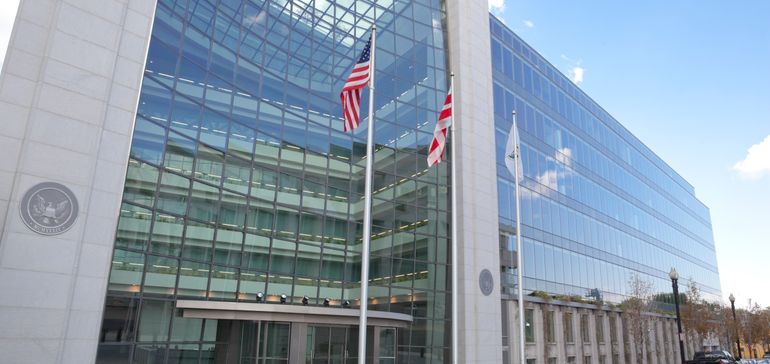Dive Brief:
- The Securities and Exchange Commission plans to enact several new regulations before May, including disclosure requirements focused on climate risk, cybersecurity and special purpose acquisition companies, according to the agency’s bi-annual rulemaking agenda.
- Many of the proposed rules reflect the often-stated concern of SEC Chair Gary Gensler that publicly traded companies do not provide investors with enough information for determining the range and degree of risks to business operations.
- “Taken together, the items on this agenda would advance our three-part mission: to protect investors, maintain fair, orderly and efficient markets, and facilitate capital formation,” Gensler said in a statement.
Dive Insight:
The SEC postponed release of a final rule requiring detailed disclosures on carbon emissions and climate risk after receiving more than 14,000 comment letters on a draft proposal released in March.
Companies would need to describe on Form 10-K their strategy toward climate risk, disclose data on their greenhouse gas emissions and obtain independent attestation of the data.
Lawmakers, state attorneys general and other critics have said that by publishing a final climate risk rule the agency would shoulder companies with excessive compliance costs and overstep its authority.
The “proposal to require disclosure of information related to climate change that is not material for most companies is tone-deaf and misguided” and advances “a far-left social agenda,” Rep. Patrick McHenry, R-N.C., said when the SEC released the draft. After the swearing in of the new Congress this month, McHenry became chairman of the House Financial Service Committee, which oversees the agency.
Opposition to the proposed climate risk rule is part of a backlash against a movement to promote environmental, social and governance best practices.
Criticism of advocates for progress on ESG goals has grown especially bitter in recent months, BlackRock CEO Larry Fink said Tuesday.
“Let’s be clear — the narrative is ugly, the narrative is creating this huge polarization,” Fink said in an interview with Bloomberg TV. “They’re trying to demonize the issues.”
Fink has become one of the most outspoken proponents of sustainable investing, promoting the objective in an annual letter to the financial industry and in public appearances.
The SEC plans before May to release several other final rules, including those focusing on:
Cybersecurity risk governance. The agency in March released a draft rule that would set tougher, more detailed rules for cybersecurity disclosure, including deeper company reports on cyberattacks and regular filings on cyber risk management, governance and strategy. Companies would need to report breaches within four days.
The Biden administration has sought to strengthen cybersecurity in both the public and private sectors, instituting a “zero trust” approach in the federal government and partnering with private electric, natural gas and water companies to improve threat detection.
SPACs. The SEC in March also proposed a tougher disclosure rule for so-called blank-check companies aimed at ensuring the same protections offered to investors in traditional initial public offerings.
The new rule would require deeper disclosure about tie-ups between SPACs and private operating companies, and tighten requirements on performance projections by SPACs and the companies that they target for purchase. SPACs would also need to provide more information about their composition, conflicts of interest and sources of dilution.
Share repurchase disclosure modernization. The agency in December 2021 proposed beefing up the regulation pertaining to stock buybacks. A company would need to file a new Form SR within one business day after buying back its own shares, detailing the total number of shares purchased, the class of the securities, average price paid and date of the buyback.
“Share buybacks have become a significant component of how public issuers return capital to shareholders,” Gensler said at the time. “We can lessen the information asymmetries between issuers and investors through enhanced timeliness and granularity of disclosures.”



